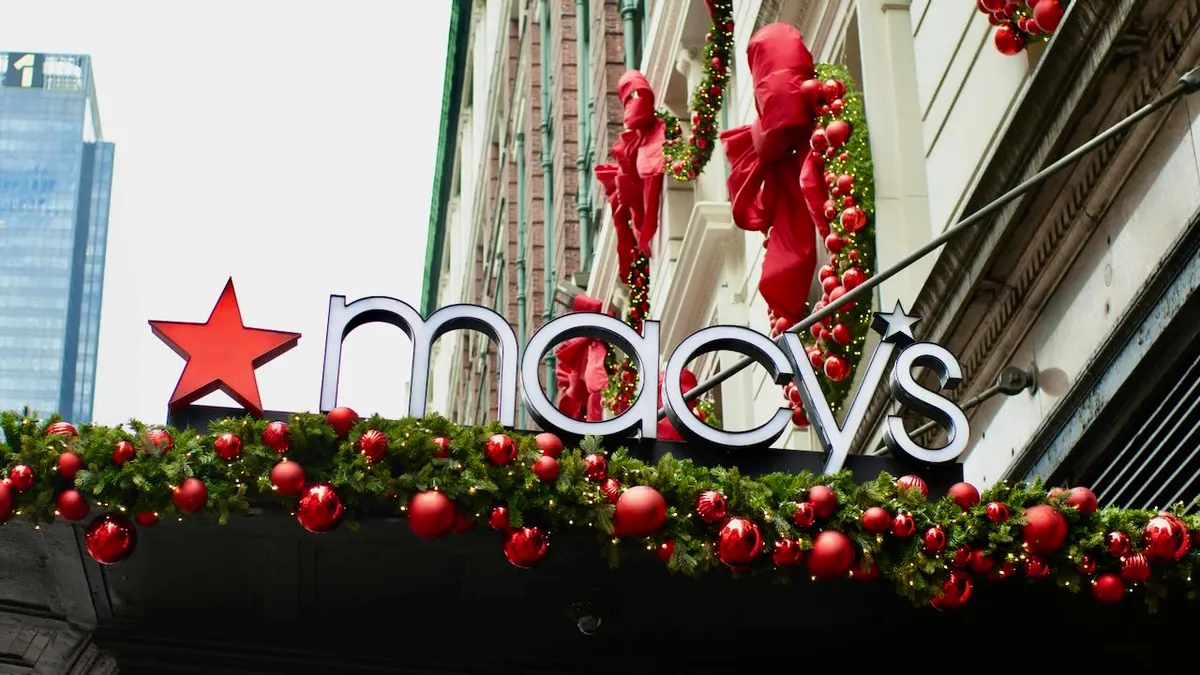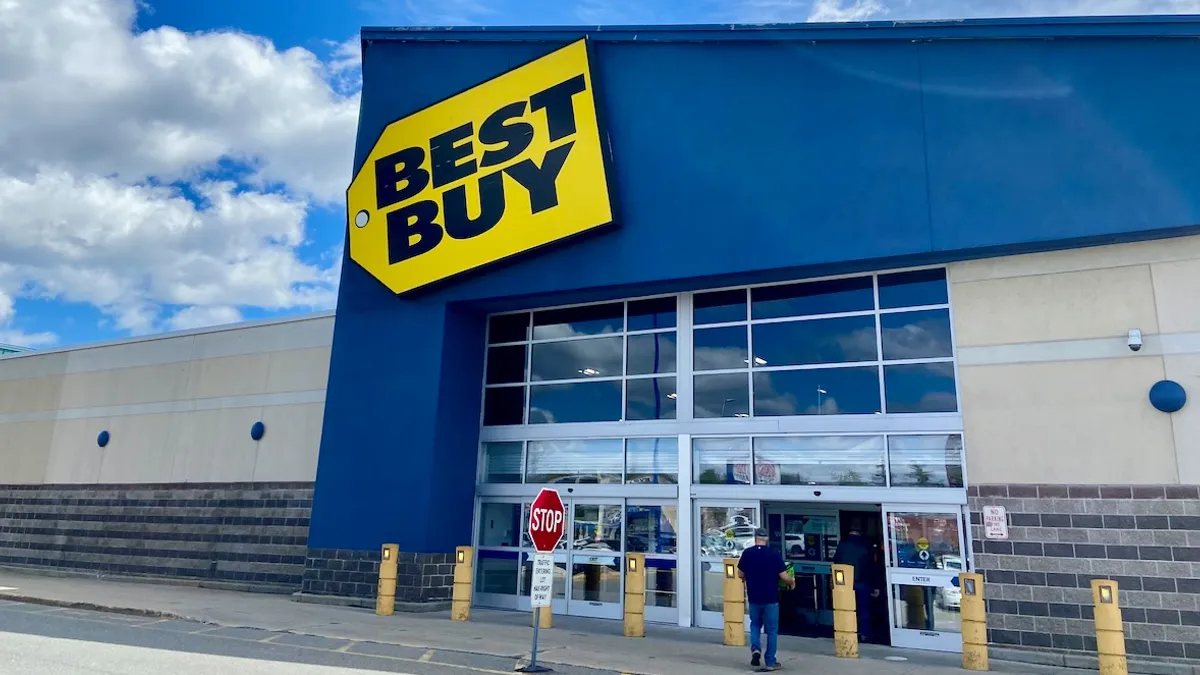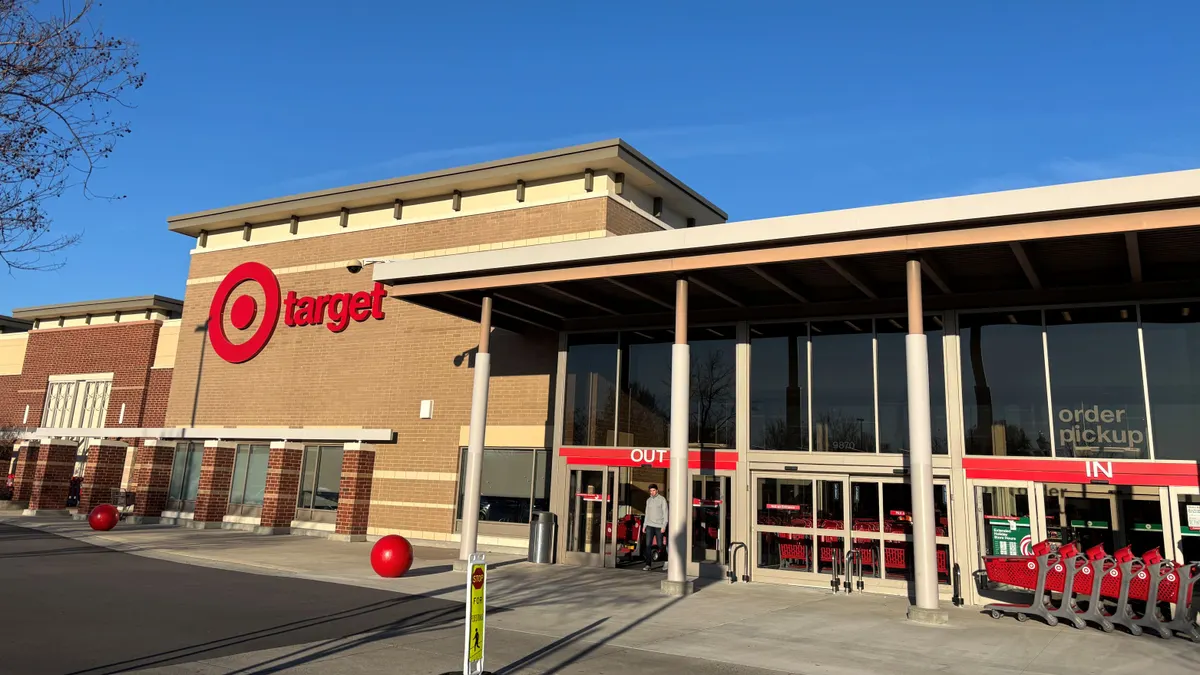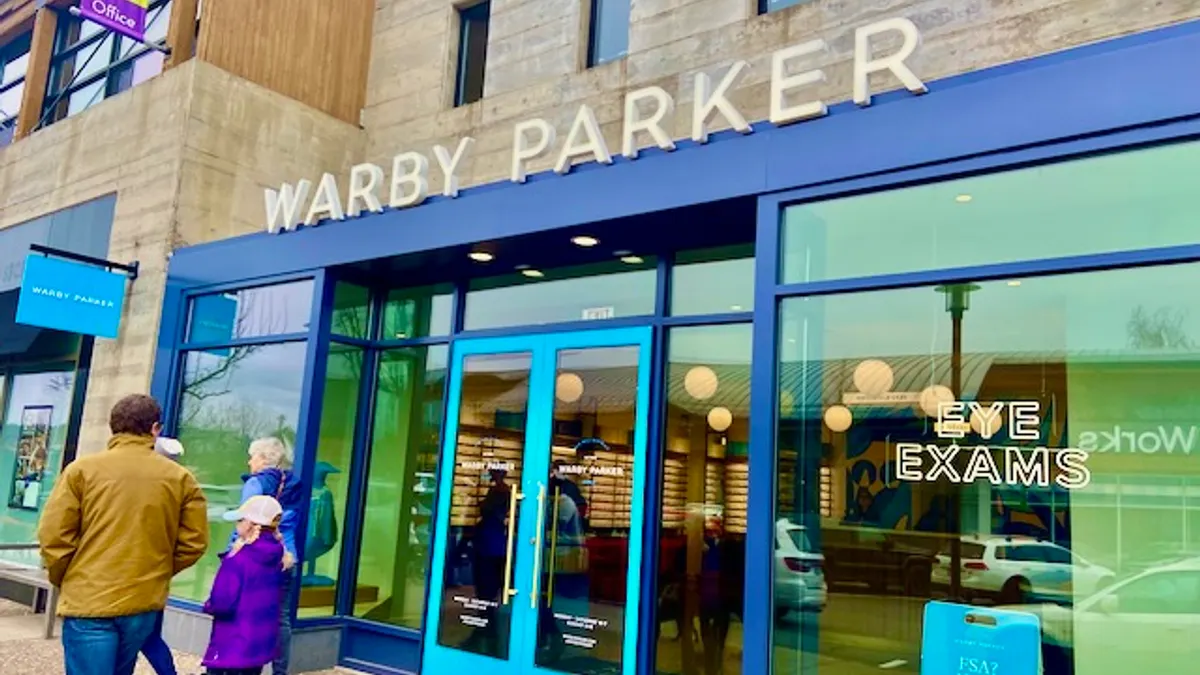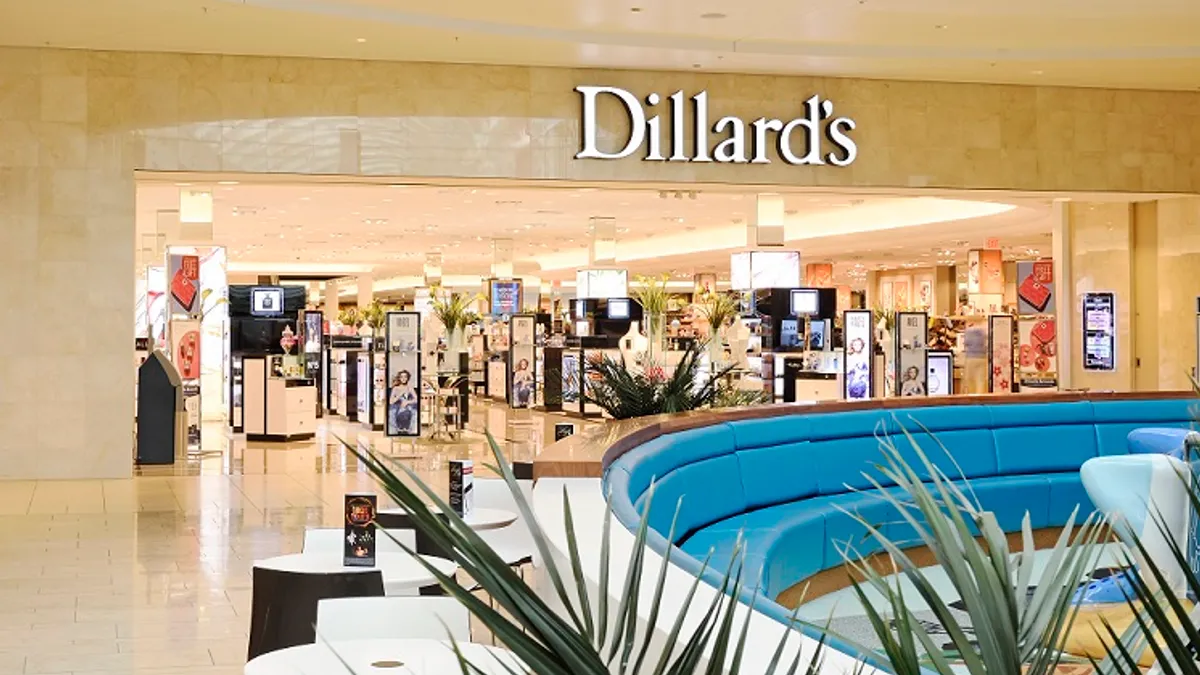The retail industry, from some angles, seems in the midst of a dystopian nightmare, with uncertainties overwhelming fundamentals, disruptors changing the game and huge amounts of money being invested in building up e-commerce and brick-and-mortar stores.
With all of these changes, even some major retailers have not been able to withstand the headwinds ushered in by a new era of retailing. Since the start of the year, at least 15 major retailers have filed for bankruptcy, including The Limited, Wet Seal and rue21. Many more, including Macy's and Sears, have announced mass store closures or efforts to restructure mounting debt loads. Moody’s Investors Service warned earlier this year that a host of others, including J. Crew and Claire’s, are on the brink of bankruptcy; others on the list, True Religion and Gymboree, filed for bankruptcy in recent weeks.
Distressed bond issuers in the U.S. retail and apparel markets are nearing recession levels, tripling in the past six years, according to a Moody’s report emailed to Retail Dive earlier this year. By Moody’s measure, 13.5% of its retail and apparel portfolio is distressed, compared to 16% during the Great Recession. Debt maturities are also headed toward record levels over the next five years, Moody’s said.
Aside from navigating a troubled retail landscape, many of these retailers have one thing in common — their owners are private equity firms. And that can be a blessing or a curse.
In many cases, these financial firms bring with them debt burdens that can make it difficult for retailers in need of a transformation to properly invest in a turnaround, whether it entails beefing up traditional efforts like merchandising or developing new systems to meet the newfangled supply chain demands wrought by e-commerce. Instead, private equity turns to the debt spigot for dividends. And while retail companies with low debt can ride out bad times, highly leveraged ones can swiftly find themselves in danger of faltering badly. Yet their owners, time after time, don’t pay the price.
Mismatched priorities hurt retailers
While many retailers have turned to private equity for support during a difficult retail environment, their turnaround ambitions have not always aligned with private equity priorities.
Take The Limited, a once-storied apparel retailer and style influencer with a nimble supply chain well ahead of its time. In January, about the time the women's apparel retailer was telling its customers that it was shuttering all its stores, its owner, private equity firm Sun Capital, was telling investors that it had nearly doubled its Limited Stores investment, according to an email to shareholders obtained by Reuters. Due to prior distributions and dividends, Sun Capital made back its original $50 million 1.8 times over, and would write down the remaining equity value of Limited Stores to zero, Reuters added. (The Limited and Sun Capital did not return Retail Dive's requests for comment.)
“The goal is after five years, sell it or IPO it."

Suneet Chandvani
Debtwire
“Private equity wants to be in and out in five to seven years,” Suneet Chandvani, head of middle market research at corporate debt intelligence firm Debtwire, told Retail Dive about that scenario. “The goal is after five years, sell it or IPO it. Closing the stores, slashing jobs, the fact that Sun Capital is marking the capital to zero — that just says it all. Retail is just a declining business, especially the brick-and-mortar business where fixed costs are high and margins are thin. It’s not they haven’t done what they were supposed to do as far as managing costs, cutting costs, cutting down on their brick and mortar footprint. It’s the nature of the business.”
Howard Davidowitz, chairman of New York City-based retail consulting and investment banking firm Davidowitz & Associates puts it more starkly. "Now private equity is there with billions in debt, and 'Goodbye,'" he said. "The Limited, American Apparel, if you go down the list, the list is endless."
While retail is no doubt a rough game these days, the game is far from over. The trouble is that, with too much debt and, often, the wrong talent (two factors driven by private equity sponsors), it can be next to impossible for retailers to get back in the game.
“Leverage is not your friend in today’s retail world, and many [distressed retailers] have had to either do a lot of catch up investment for e-commerce or omnichannel capabilities, or invest in the store and the brand,” Moody’s Vice President and Senior Analyst Raya Sokolyanska told Retail Dive.
“It’s not a given that a company would under-perform under private equity ownership," she said. "It’s just that the extra debt puts extra constraints on their flexibility. I would say that, depending on the company and how much turnaround works need to be done, a buyout can be done with a modest amount of leverage. It depends on the brand and the strength of the business. But, broadly, the ability to bear a high level of debt is probably lower because of the stress in the sector.”
When private equity does good
While a private equity takeover could result in increased pressure and misguided priorities for retailers, it's not necessarily a death sentence.
Sycamore Partners, which last month agreed to buy Staples for $6.9 billion, bought specialty retailer Hot Topic in 2013 for $600 million, and the teen apparel and accessories retailer is holding on. Sycamore, which snapped up The Limited’s intellectual property rights during its bankruptcy auction, has also helped turn around Talbot’s and Belk department stores. (Sycamore declined to be interviewed for this story.) “Even though who knows what the future holds for [Hot Topic], several years after its buyout it’s performed well,” Sokolyanska said.
"The thing about a company that is already distressed is you can’t do the financial engineering. The idea is to buy it cheaply enough and make the investments."
Eileen Appelbaum
Senior Economist at the Center for Economic and Policy Research
For its Staples deal, Sycamore likely sees potential in a retailer that already has a fairly strong e-commerce side, if room for improvement, Eileen Appelbaum, senior economist at the Center for Economic and Policy Research and author of "Private Equity at Work: When Wall Street Manages Main Street," told Retail Dive.
Though Staples is facing challenges after the failure of its proposed merger with rival Office Depot, it's not in deep distress, she said. "The thing about a company that is already distressed is you can’t do the financial engineering," she said. "The idea is to buy it cheaply enough and make the investments."
According to Appelbaum, a good example of a successful private equity-driven retail deal involves Encore Consumer Capital’s purchase of Aidell’s, a family-owned, San Francisco-based sausage maker and retailer. Encore knew that Sara Lee (now Tyson-owned Hillshire Brands) was in the midst of pivoting from selling baked goods to a wider assortment of meats and other foods. Taking stock of Aidell’s excellent local reputation and its process of maintaining its sausages’ freshness without preservatives, Encore believed it could make the company appealing to Sara Lee by introducing marketing expertise and other initiatives to take the brand national. The firm sold Aidell’s to Sara Lee in 2011 for $87 million.
“[Encore] recognized that Aidell’s had really good managers who were interested in growing the company,” Appelbaum said, whose research includes private equity and retail. “The private equity firm invested in that technology and put on the board people who knew about national marketing channels. They put money into it. They had some debt in the company, but they didn’t overburden the company, and I can now buy Aidell’s sausages in my local food market in D.C.”
In the process, the Aidell family was “handsomely paid,” the private equity firm made good on its investment and Sara Lee acquired an established brand that furthered its growth strategy, she said. But not all private equity retail projects are so focused.
The wrong talent
Most retailers are attempting to adjust to a fraught environment, where department stores and specialty stores (especially in apparel) are struggling along with the malls they’re in. But private equity firms are neglecting to tap the right kind of expertise to rise to such challenges, Greg Portell, lead partner for Consumer Products & Retail Practice in the Americas for consulting firm A.T. Kearney, told Retail Dive.
According to Portell, much of the trouble private equity firms are having with retail acquisitions underscores the changes in retail.
“Those changes needed in retail aren’t going to come from the established industry, they’re likely to come from the disruptors,” he said. “It's not so much that the money guys are behind [failed turnarounds], it’s that very few retailers have that authentic of a brand identity. I think you would struggle to find an example of any retailer really going out on a limb and creating a new retail experience. People criticize J.C. Penney [under Ron Johnson], but they really should be celebrated for giving it a try.”
Retailers with strong identities that inspire trust and excitement include beauty retailer Lush, teen brand Torrid (once owned by Hot Topic) and outdoor retailer REI, according to Portell. REI’s “Opt Outside” campaign to shutter on Black Friday, for example, left many retail experts aghast. But it has resonated with the outdoorsy enthusiasts in its customer base and reflects the kind of against-the-grain thinking that the retail talent brought in by private equity isn’t often capable of, he said.
Still, when a private equity firm piles on debt, not even the most esteemed retail gurus can apply the remedies these companies need, whether old-school or unconventional, experts told Retail Dive.
"Private equity, the first thing they do is put you on the edge. And when you’re an apparel chain, living on the edge is deadly because you can’t fix a business in two years."

Howard Davidowitz
Chairman of Davidowitz & Associates Inc.
J. Crew, for example, until recently was led by Mickey Drexler, hailed as one of the top American merchants in history and credited with transforming The Gap from a small chain to the world’s biggest apparel retailer. At J. Crew his abilities, in part, may have been undermined by a heavy debt load as it alienated customers over the fit and quality of its clothing and largely abandoned its classic styles for the quirkier approach favored by executive creative director Jenna Lyons.
Drexler may have been able to turn J. Crew around, but for its private equity owners leaving it little cash or time for the job, Davidowitz told Retail Dive. Instead, thanks to the debt obligations, suppliers are likely looking for stiffer terms due to the escalating risk, he said.
“If this were a normal company, with cash in the bank, I 100% believe that three years from now J. Crew would be rolling. But what supplier is going to deal with him in a normal way? Private equity, the first thing they do is put you on the edge. And when you’re an apparel chain, living on the edge is deadly because you can’t fix a business in two years. They borrow billions, they have 80,000 lawyers and now they’re trying — although the court will decide this — to extract from the lenders the only value that will be there, which is the intellectual property of J. Crew and Madewell."
"For J. Crew, in my opinion, it’s over, because there is no way to deal with the debt," Davidowitz added. "It’s impossible.”
The second bite at the apple
Many people don’t realize that a private equity sale — whether of a retailer itself or its assets (like real estate or intellectual property) — is often “the second bite at the apple,” Appelbaum said.
The first bites come in various forms. One is “dividend recaps,” where the private-equity firms, after taking on debt on behalf of the retailer, extract payouts that siphon portions of those funds, money that would otherwise go toward merchandising changes or other turnaround actions. Another is “monitoring services agreements” that Appelbaum has found deep in the paperwork in several private-equity-retail deals.
In their deal with Claire’s, for example, Tri-Artisan Capital Partners and Apollo Global Management have an agreement entailing a $3 million annual cash payment to the private equity managers for unspecified services, which Appelbaum said may be required even in the absence of any services at all. “I believe that these are just hidden dividends,” she said, though she notes, rather than taxable as such, they appear as deductible expenses (yet another boon to the financial sponsors).
"We do have to be careful not to paint all private equity with the same brush. The thing is, though, that we look at the 'retail apocalypse' and we say that it’s all Amazon, but the truth is that it’s not all Amazon."
Eileen Appelbaum
Senior Economist at the Center for Economic and Policy Research
That sounds like a bad deal that nobody would sign, but the retailers have little choice, Appelbaum said: If board members refuse, the new owners will likely replace them with ones who will comply.
A retailer with significant real estate is especially vulnerable to a takeover from private equity, which will see the valuable holdings as another asset to leverage, Appelbaum said. "Retail is highly cyclical, both because tastes change and because of the economy," she said. "When retailers own their own real estate, if there is a low debt burden and low rent, you can generally survive the downturn, and be there when the upturn comes."
That’s the traditional scenario. But retailers with prime real estate holdings are a sought-after target for private equity firms.
"If these stores own their own property, the first thing [private equity owners] do is divide it into an operating company that runs the business" and a real estate investment trust, she said. That can be illegal, if owners strip a retailer of its assets and thereby lead it to bankruptcy. Retailers end up paying rent for property they used to own, she said, rents that often magically rise even in a recession (when rents usually stabilize or fall), while real estate windfalls go to investors rather than suppliers or employees.
That's the situation that ultimately crippled California department store Mervyn's, which was acquired by private equity companies Cerberus Capital, Sun Capital Partners and Lubert-Adler/Klaff from Target in the early 21st century. At the time, the retailer employed 30,000 workers and had a popular brand and a broad store fleet. It's a tale of failure and redemption, in that the retailer's vendors won a rare victory in court, according to Appelbaum, reaching a settlement for $166 million in 2012.
Despite the track record of private equity ownership in retail, embattled retailers continue to turn to them, like flowers to the sun. Most recently, the Nordstrom family is reportedly considering tie-ups with private equity firms Leonard Green & Partners LP, Apollo Global Management LLC and KKR & Co LLP to raise $1 billion in equity, as they mull taking the company private. Removing Wall Street pressure could give Nordstrom more flexibility in reorganizing its finances, but PE ownership could burn. Leonard Green, for example, along with CVC Capital Partners, has taken a series of payouts from warehouse retailer BJ Wholesale's debt coffers, bring the total to some $1.8 billion in their five years of ownership and bumping the debt-to-earnings ratio to unhealthy levels, according to a Bloomberg report early this year.
"Private equity often leaves these retailers unable to cope with any change in the environment."

Eileen Applebaum
Senior Economist at the Center for Economic Research
"We do have to be careful not to paint all private equity with the same brush," Appelbaum said. "The thing is, though, that we look at the 'retail apocalypse' and we say that it’s all Amazon, but the truth is that it’s not all Amazon. Private equity often leaves these retailers unable to cope with any change in the environment — it could be taste that you have to adjust to, it could be a downturn in the economy that you have to survive or it could be a disruption like Amazon. But you need resources to respond to that. I’m not saying that Amazon has nothing to do with it — Amazon is the challenge. If [retailers are] private equity owned, chances are they won’t have the ability to adjust."






